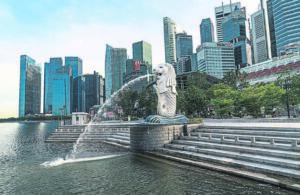Some hard truths for the Malays

Even within the Malay community there are privileges that most cannot access.
Habhajan Singh, The Malaysian Reserve
WE HAD the Kongres Ekonomi Bumiputera (Bumiputera Economic Congress) towards the end of February. On the whole, it was rather muted compared to the loud and noisy Kongress Maruah Melayu (Malay Dignity Congress) in 2019.
Both the events took place with the Pakatan Harapan (PH) powering the federal government.
The 2019 event was engineered by groups aligned to forces opposing PH. But the then Prime Minister (PM) Tun Dr Mahathir Mohammad attended the event, and defended his presence when assailed by critics. “Our dignity can only be restored by our own efforts,” he told the audience.
The more recent event was organised by key personalities from Umno, now a junior member of the Unity Government under the prime ministership of Datuk Seri Anwar Ibrahim. The group was led by UMNO president Datuk Seri Dr Ahmad Zahid Hamidi, who is battling hard to keep his position in the party. He is also a deputy prime minister (DPM).
In light of the congress, I spoke to Malay associates that I’ve known over the years as a journalist. I asked: What would you like to tell your fellow Malays that you would not normally say out loud?
I said Malays, not Bumiputera. It was intentional. Until today, some of the elite Malay and the once-who-got-there-first type have managed to secure a comfortable living for themselves. For some, they have amassed enough wealth to last for a few generations. Some you know, many you don’t.
Here are some of the messages I received. These are home truths for the nation.
Respondent 1: As a rare Malay that has survived in a Chinese majority company and has observed other Malay colleagues and subordinates that have struggled in the environment, my advice to a Malay new hire is to be “at par if not better” than the Chinese. Otherwise, they will not respect you and therefore will not recognise your capability. Without the recognition, you will soon become irrelevant.
How do you do that? You need to know your stuff well and be ready to work. You have to be willing to spend the hours and produce quality work that they can rely on. Make yourself so valuable that they cannot ignore you.
I’ve been frustrated on a few occasions when Malay staff refused to work as hard as their counterparts from other races. After a few years, they resign to take up positions in what they deem to be easier environments.
Respondent 2: Four decades ago, Singapore was just a developing nation, a third-world country, focusing on industrialisation, urban development and economic stability. It grappled with housing shortages, limited natural resources and an infant financial sector.
Today, Singapore has transformed into a global financial hub with a dynamic economy, world-class infrastructure and a strong emphasis on innovation and technological advancement.
How did it leap ahead of Malaysia so far and so fast? Without doubt it is a major player in finance, technology and logistics, a leader in global business and a true international financial centre.
Here in Malaysia, our politicians argue about bak kut teh and why school canteens are asked to remain open during Ramadhan.
Perhaps we need to emulate Singapore’s success and embed the critical success factors in our strategic plans. Don’t worry about sectorian economics as all will benefit if the critical success factors are in place.
What are they? The key features are talent development, technological infrastructure, regulatory environment and innovation, and global connectivity.
Singapore invested significantly in talent development, fostering a pool of skilled professionals in the financial and technology sectors. We, too, can benefit from initiatives to develop specialised skills and talents in hi-tech sectors. Our education system sucks, it does not foster creative and innovative thinking.
In short, we need to make it easy to do business, build talents in new skills areas, promote meritocracy and develop creativity and innovation.
As long as we continue to have this “Ketuanan” mindset, we will be hard-pressed to push open the doors to opportunities in abundance.
Respondent 3: Work hard. Some Malays become lazy due to the special treatment. That’s where the term “Alibaba” comes from. I’ve worked like a dog to be at the station where I am today — successful and respected.
Respondent 4: Affirmative action policies may lead to selecting candidates based on their background rather than qualifications, potentially overlooking more qualified individuals. Even within the Malay community there are privileges that most cannot access. The share for Bumiputera scheme is one example. Therefore, it created resentment from other groups. These programmes can create resentment among those who feel they are disadvantaged by them.
Limit long-term benefits. Affirmative action might provide a temporary boost for underrepresented groups, but may not address underlying societal issues that create inequality. It’s apparent for all to see Malays leaders, siblings and scions benefitted the most.
Respondent 5: I did not really bother about the congress as I thought it was a mere political stunt. It’s best I skip this topic.

